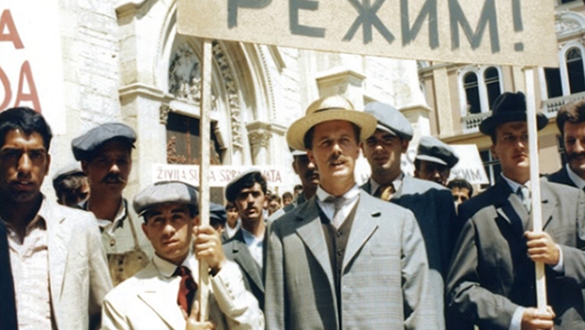
The film deals not only with the turbulent history of Bosnia and Herzegovina and other South Slavic peoples in the early 1910s, but also with the history of Balkan cinema. In this historical film, the protagonist refers to one of the first filmmakers in the Balkans and is portrayed as an artistic figure associated, among others, with a revolutionary woman and a cabaret artist. Stojanović, in a feast of vivid images, constantly associates Belle Epoque’s art and cinema with revolutionary action and ideological struggles. The brothel as a place of conspiracies and intrigues and the symbolic cabaret performances are in a way the scene of Balkan history.
The Serb Nikola Stojanović (1942-2021) was a director, screenwriter and history of cinema professor. He directed more than 20 short and feature films, documentaries and television dramas. His films won awards at major Yugoslav film festivals. He was one of the founders of the important Yugoslav film magazine Sineast. He was considered one of the most important scholars of Akira Kurosawa's work.



